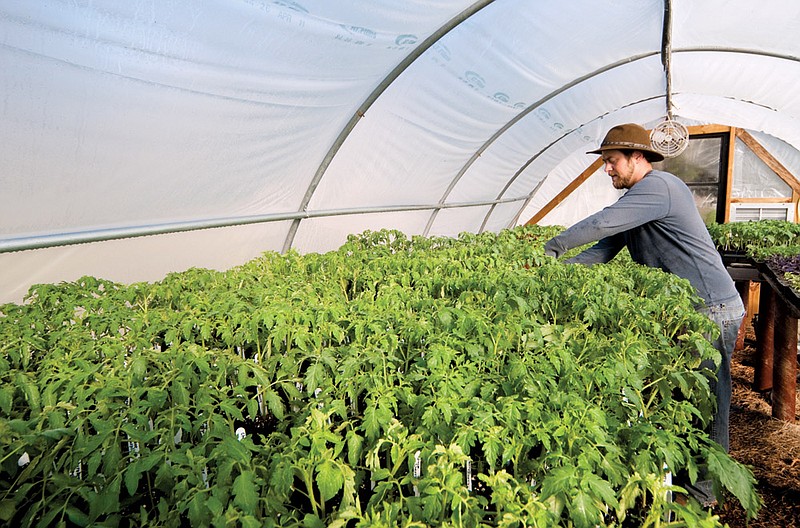Josh Hardin has been around farming his entire life. His family owned a farm that he worked on as he grew up, and after going to school in Santa Cruz, Calif., to study agroecology, he began his pursuit of organic farming.
Hardin’s family has a farm in Grady.
“I came back [to Arkansas] in 2007 and spent a lot of time dealing with the Delta,” Hardin said.
After Hardin learned what it takes to be an organic farmer, his Laughing Stock Farm was born.
His first farm was a section of land on his family’s property, surrounded by land where farmers used pesticides. Hardin said pesticides would get into his crops because of the wind and planes that sprayed the surrounding areas.
The name “Laughing Stock” comes from what the other farmers thought of Hardin and his farming skills.
“[The farm] was on an island down there, and people were laughing at me every day,” Hardin said. “Everybody there laughed and thought how crazy it was for me to not use chemicals.”
In 2010, Hardin and his wife bought 40 acres in Sheridan to practice organic farming. Twenty-five of those acres are certified organic.
The additional land acts as a pesticide buffer for Laughing Stock Farm.
“[The other farms] are far enough away, we don’t have to worry about planes and other pesticides,” Hardin said.
Although the extra land was a “considerable investment,” Hardin said, it was the only way the farm could get organically certified and stay certified.
Learning how to farm organically took a lot of practice, Hardin said.
“You have to understand the soil health and how that’s tied into the health of the plants,” Hardin said.
When he first started farming organically, Hardin said, he used oils and botanicals to prevent insects from invading the crops he worked so hard to grow.
Hardin’s farm was certified organic last year. He grows a little bit of everything on his farm and grows crops in hoophouses in the offseason.
Hardin said the hoophouses are essentially greenhouses, but the sides of the building can be rolled up to instantly ventilate the structure.
“We built these houses and added heat [to them] and learned from this experience that if you want to be at market earlier, you have to do something like this,” Hardin said.
The hoophouses allow Hardin to provide temperature control for his crops and lock them up at night.
Hardin’s crops range from potatoes to tomatoes to ginger.
Although the farmers market season really kicks off in May, Hardin said he is already gearing up for it.
“We’re going to be at four different farmers markets this year,” Hardin said. “We’re only participating in markets where only growers are allowed.”
Hardin’s latest project is to create a more sustainable irrigation system for his farm. The system will be solar powered.
“We’re going to get off of city water and use our own spring-fed lake,” Hardin said.
Hardin said this will cut costs at his farm by using energy from the sun to power his irrigation system.
To Hardin, the word “organic” means small scale, and he said he thinks a lot of people want to help small-scale businesses.
“It takes a lot of time and energy to be certified and really go through this process,” Hardin said. “It requires commitment.”
Hardin said he devotes at least 40 hours a week to farming his land and wants to get his teaching degree and teach agricultural education to keep the art of organic farming alive. Hardin is finishing work on a bachelor’s degree at the University of Arkansas at Pine Bluff.
Staff writer Lisa Burnett can be reached at (501) 244-4307 or lburnett@arkansasonline.com.
